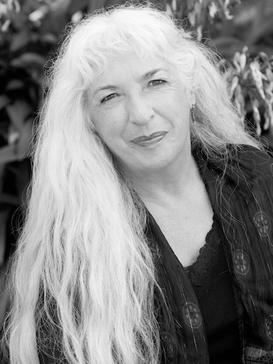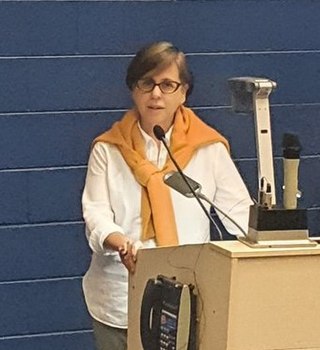Related Research Articles

Posthumanism or post-humanism is an idea in continental philosophy and critical theory responding to the presence of anthropocentrism in 21st-century thought. Posthumanization comprises "those processes by which a society comes to include members other than 'natural' biological human beings who, in one way or another, contribute to the structures, dynamics, or meaning of the society."

Jan or Johannes Swammerdam was a Dutch biologist and microscopist. His work on insects demonstrated that the various phases during the life of an insect—egg, larva, pupa, and adult—are different forms of the same animal. As part of his anatomical research, he carried out experiments on muscle contraction. In 1658, he was the first to observe and describe red blood cells. He was one of the first people to use the microscope in dissections, and his techniques remained useful for hundreds of years.
Anthropocentrism is the belief that human beings are the central or most important entity on the planet. The term can be used interchangeably with humanocentrism, and some refer to the concept as human supremacy or human exceptionalism. From an anthropocentric perspective, humankind is seen as separate from nature and superior to it, and other entities are viewed as resources for humans to use.

The Anthropocene is a proposed geological epoch dating from the commencement of significant human impact on Earth's geology, landscape, limnology and ecosystems, including, but not limited to, anthropogenic climate change. The nature of the effects of human activities on Earth can be seen for example in biodiversity loss, climate change, biogeography and nocturnality parameters, changes in geomorphology and stratigraphy.

Dipesh Chakrabarty is an Indian historian and leading scholar of postcolonial theory and subaltern studies. He is the Lawrence A. Kimpton Distinguished Service Professor in history at the University of Chicago, and is the recipient of the 2014 Toynbee Prize, named after Professor Arnold J. Toynbee, that recognizes social scientists for significant academic and public contributions to humanity. He is the author of the seminal Provincializing Europe: Postcolonial Thought and Historical Difference (2000).
Therianthropy is the mythological ability or affliction of individuals to metamorphose into animals or hybrids by means of shapeshifting. It is possible that cave drawings found at Cave of the Trois-Frères, in France, depict ancient beliefs in the concept.
John Frow is an Australian writer of literary theory, narrative theory, intellectual property law, and cultural studies. He is currently a professor of English at the University of Sydney.
Matthew Robert Glozier is an Australian-based historian and history teacher.
Loren T. Stuckenbruck is a historian of early Christianity and Second Temple Judaism, currently professor of New Testament at the University of Munich, in Germany. His work has exerted a significant impact on the field.
Niall Lucy was an Australian writer and scholar best known for his work in deconstruction.

Carnism is a concept used in discussions of humanity's relation to other animals, defined as a prevailing ideology in which people support the use and consumption of animal products, especially meat. Carnism is presented as a dominant belief system supported by a variety of defense mechanisms and mostly unchallenged assumptions. The term carnism was coined by social psychologist and author Melanie Joy in 2001 and popularized by her book Why We Love Dogs, Eat Pigs, and Wear Cows (2009).
Sue Donaldson is a Canadian writer and philosopher. She is a research fellow affiliated with the Department of Philosophy at Queen's University, where she is the co-founder of the Animals in Philosophy, Politics, Law and Ethics (APPLE) research cluster.
Siobhan O'Sullivan was an Australian political scientist and political theorist. She was an associate professor in the School of Social Sciences, University of New South Wales. Her research focused, among other things, on animal welfare policy and the welfare state. She was the author of Animals, Equality and Democracy and a coauthor of Getting Welfare to Work and Buying and Selling the Poor. She co-edited Contracting-out Welfare Services and The Political Turn in Animal Ethics. She was the founding host of the regular animal studies podcast Knowing Animals.

Political Animals and Animal Politics is a 2014 edited collection published by Palgrave Macmillan and edited by the green political theorists Marcel Wissenburg and David Schlosberg. The work addresses the emergence of academic animal ethics informed by political philosophy as opposed to moral philosophy. It was the first edited collection to be published on the topic, and the first book-length attempt to explore the breadth and boundaries of the literature. As well as a substantial introduction by the editors, it features ten sole-authored chapters split over three parts, respectively concerning institutional change for animals, the relationship between animal ethics and ecologism, and real-world laws made for the benefit of animals. The book's contributors were Wissenburg, Schlosberg, Manuel Arias-Maldonado, Chad Flanders, Christie Smith, Clemens Driessen, Simon Otjes, Kurtis Boyer, Per-Anders Svärd, and Mihnea Tanasescu. The focus of their individual chapters varies, but recurring features include discussions of human exceptionalism, exploration of ways that animal issues are or could be present in political discourse, and reflections on the relationship between theory and practice in politics.
Clare Palmer is a British philosopher, theologian and scholar of environmental and religious studies. She is known for her work on environmental and animal ethics. She was appointed as a professor in the Department of Philosophy at Texas A&M University in 2010. She had previously held academic appointments at the Universities of Greenwich, Stirling, and Lancaster in the United Kingdom, and Washington University in St. Louis in the United States, among others.
The Animals & Society Institute (ASI) is an American non-profit scholarly organization that works to expand knowledge about human-animal relationships, develop knowledge and resources in the field of human-animal studies (HAS), and create resources to address the relationship between animal cruelty and other forms of violence.

As of 2018, Wolters Kluwer ranks as the Dutch biggest publisher of books in terms of revenue. Other notable Dutch houses include Brill and Elsevier.

Animal–industrial complex (AIC) is a concept used by activists and scholars to describe what they contend is the systematic and institutionalized exploitation of animals. It includes every economic activity involving animals, such as the food industry, animal testing, medicine, clothing, labor and transport, tourism and entertainment, selective breeding, and so forth. Proponents of the term claim that activities described by the term differ from individual acts of animal cruelty in that they constitute institutionalized animal exploitation.

Deborah Bird Rose (1946-2018) was an Australian-based ethnographer of Aboriginal peoples; plus, in her lifetime, an increasingly ecological, multi-species ethnographer and leader in multidisciplinary ethnographic research
Her research since the 1980s has focused on entwined social and ecological justice, based on long-term fieldwork with Aboriginal people in Australia. Her approach has drawn on elements of anthropology, history, philosophy, cultural studies, religious studies, and animal studies and has led to innovative understandings of ethnographic and ecological knowledge, most recently in the new area of multispecies ethnography

Cristina Rocha is a Brazilian-Australian Professor of anthropology at Western Sydney University. She works at the intersection between globalisation, migration and religion. She has written on Buddhism, New Age spirituality and most recently on pentecostalism.
References
- ↑ "Wadiwel, Dr Dinesh". Australasian Animal Studies Association. 10 June 2015. Retrieved 11 August 2018.
- 1 2 "Dr Dinesh Wadiwel". University of Sydney. Retrieved 11 August 2018.
- ↑ "Dinesh Wadiwel". The Conversation . Retrieved 11 August 2018.
- 1 2 Armstrong, Philip (2017). "[Review] Dinesh Wadiwel. The War Against Animals". Animal Studies Journal. 6 (2): 237–47.
- 1 2 Calarco, Matthew (2016). "Animal Studies". The Year's Work in Critical and Cultural Theory. 24 (1): 24–42. doi:10.1093/ywcct/mbw002.
- 1 2 Wadiwel, Dinesh (2015). The War Against Animals. Leiden, Netherlands: Brill.
- ↑ Human Animal Research Network Editorial Collective (eds.) (2015). Animals in the Anthropocene. Sydney, Australia: Sydney University Press. ISBN 9781743324394.
{{cite book}}:|author=has generic name (help) - ↑ Chrulew, Matthew, and Dinesh Wadiwel (eds.) (2016). Foucault and Animals. Human-Animal Studies. Vol. 18. Leiden, Netherlands: Brill.
{{cite book}}:|author=has generic name (help)CS1 maint: multiple names: authors list (link) - ↑ Mall, Vijay Laxmi (2019). "Foucault and Animals, edited by Chrulew, Matthew & Dinesh J. Wadiwel". Comparative Sociology. 18 (3): 413–5. doi:10.1163/15691330-12341503.
- ↑ https://edinburghuniversitypress.com/book-animals-and-capital.html